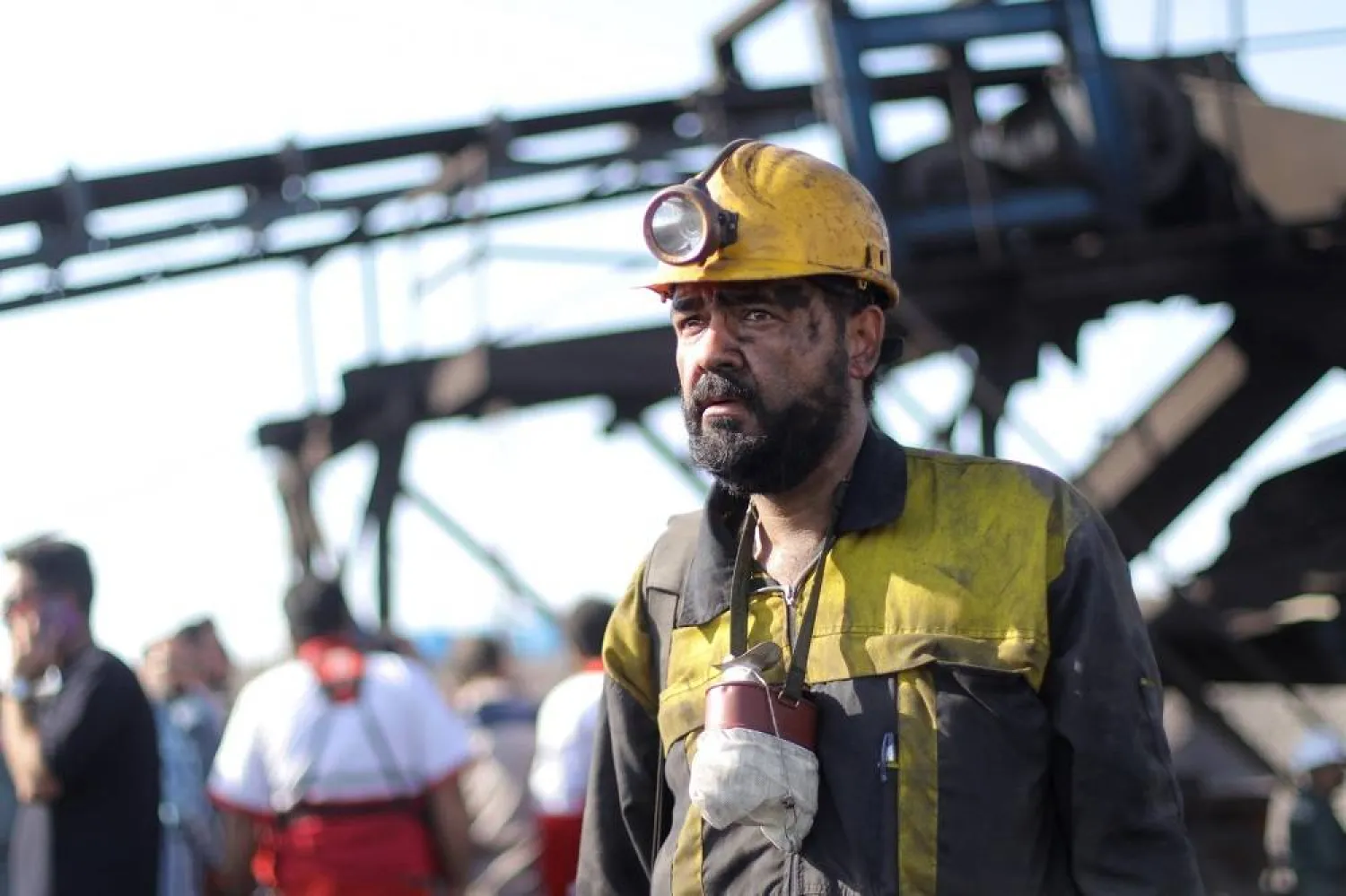Rescuers on Monday recovered the bodies of more workers killed in an explosion at a coal mine in eastern Iran, bringing the death toll in the disaster to at least 38, officials said. Another 14 miners are still believed to be trapped below ground.
The blast struck the coal mine in Tabas, about 540 kilometers (335 miles) southeast of the capital, Tehran, on Saturday night. On Sunday, weeping miners stood alongside mine cars that brought up the bodies of their colleagues, covered in coal dust.
The state-run IRNA news agency on Monday reported the new death toll from the blast, as well as the number of missing.
Survivors interviewed by Iranian state television, still smudged in coal dust, described chaotic scenes after the blast.
“We were in the mine, working. Suddenly there was some smoke rising ... then I noticed I had difficulty breathing,” said one miner who was not identified by state TV. “I jumped off from the workshop and I scrambled until I reached somewhere (safe). My friends (remained) in there.”
Authorities said a sudden leak of methane gas led to the blast as workers began their work. They said mine gas checks Saturday night did not show any leakage before the explosion. Bodies recovered so far showed no signs of blast injuries, suggesting many of the workers died from the gas before the blast.
Such gases are common in mining, though modern safety measures call for ventilation and other measures to protect workers.
It wasn't immediately clear what safety procedures were in place at the privately owned Tabas Parvadeh 5 mine, operated by Mandanjoo Co. The firm could not be reached for comment.
Iran’s new reformist president, Masoud Pezeshkian, preparing to travel to New York for the UN General Assembly, said Sunday that he ordered all efforts be made to rescue those trapped and aid their families. He also said an investigation into the explosion had begun.
“I spoke with the ministers of health, interior and security and ordered that the issues of the families of the victims and the injured be quickly resolved,” Pezeshkian said, according to a statement from his office. “I also requested to take measures to prevent the recurrence of such incidents by improving work standards in the country’s mines.”
Iran’s mining industry has been struck by disasters before. In 2017, a coal mine explosion killed at least 42 people. Then-President Hassan Rouhani, campaigning ahead of winning reelection, visited the site in Iran’s northern Golestan province and angry miners besieged the SUV he rode in, kicking and beating the armored vehicle in a rage.
In 2013, 11 workers were killed in two separate mining incidents. In 2009, 20 workers were killed in several incidents.
Lax safety standards and inadequate emergency services in mining areas were often blamed for the fatalities.
Oil-producing Iran is rich in a variety of minerals. It annually consumes around 3.5 million tons of coal, but only extracts about 1.8 million tons from its mines per year. The rest is imported, often consumed in the country’s steel mills.









